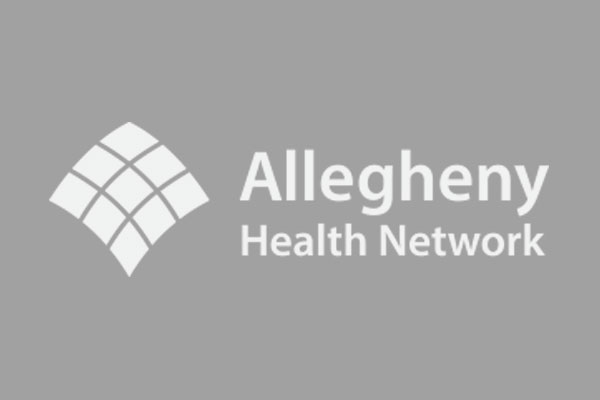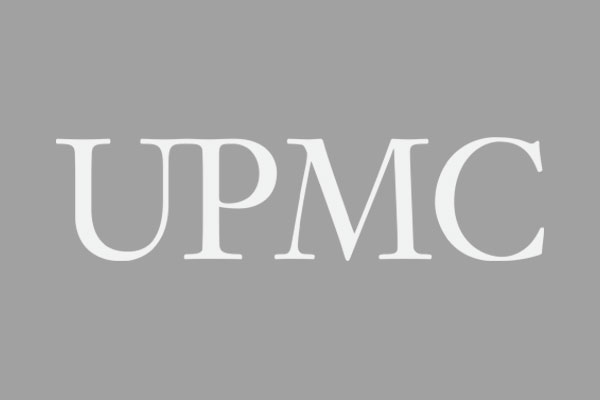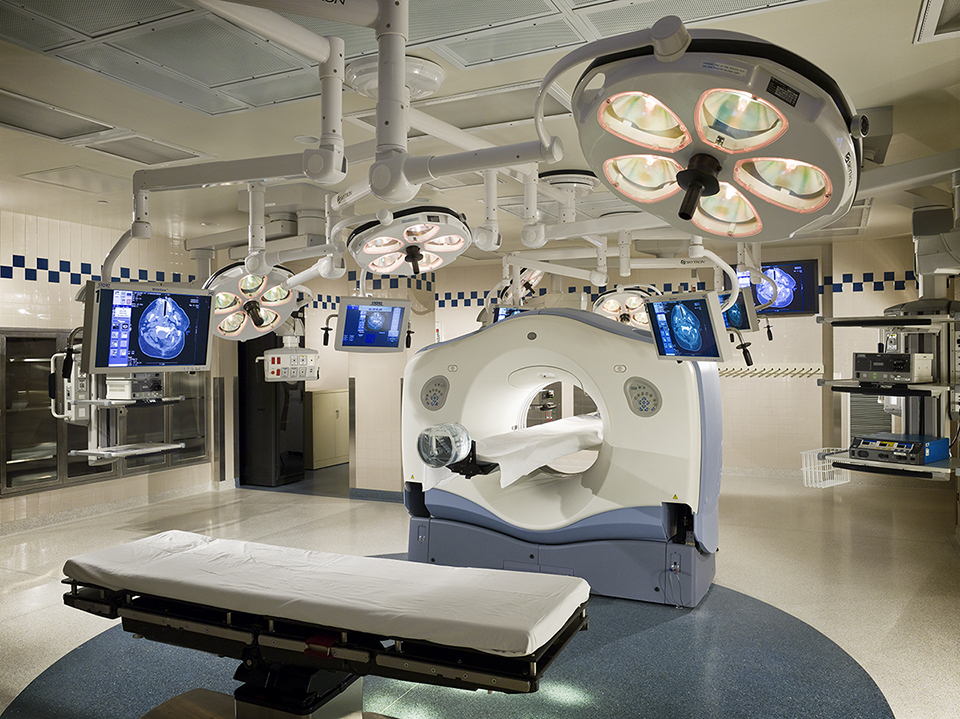
Healthcare has long put Pittsburgh on the map beginning in 1954, when the first Polio Vaccine was created by Jonas Salk at the University of Pittsburgh. Today, Pittsburgh remains on the map as home to some of the best hospitals in the country.
UPMC (University of Pittsburgh Medical Center) UPMC is committed to providing expert medical care to patients from throughout the region and around the world, and to developing innovative solutions that will transform medicine through clinical and technological innovation, research, and education. From high-caliber staff and groundbreaking discoveries and treatments, to a health insurance subsidiary and tradition of educating the next generation of medical professionals, UPMC is a true leader in the health care field.
During this time of uncertainty, UPMC health care providers are well-trained and ready to care for all patients, safely and effectively. As one of the nation’s leading academic medical centers, UPMC has worked tirelessly to create protocols that ensure everyone’s safety, including screening patients, visitors, and staff and disinfecting facilities regularly.
Consistently recognized for excellence, UPMC hospitals are ranked among the nation’s premier hospitals by organizations such as U.S. News & World Report which consistently ranks UPMC Presbyterian Shadyside among the nation’s best hospitals in many specialties and ranks UPMC Children’s Hospital of Pittsburgh on its Honor Roll of Best Children’s Hospitals. In addition, more than 500 UPMC physicians are featured in lists of the region’s best doctors in recognition of their outstanding care to patients. And, nine UPMC hospitals have achieved prestigious Magnet® designation for nursing excellence, an honor achieved by just 8.9 percent of hospitals nationwide.
As a world-renowned health care provider and insurer, UPMC offers patients innovations developed through research in collaboration with the University of Pittsburgh, which is consistently a top recipient of funding by the National Institutes of Health. The impact of many of UPMC’s clinical innovations can be seen in the delivery of health care worldwide.
UPMC’s Insurance Services Division is the largest health insurer in Western Pennsylvania, with 3.9 million members. J.D. Power has consistently recognized UPMC Health Plan for the highest member satisfaction among commercial health plans in Pennsylvania.
Patients and their families trust UPMC to provide expert, compassionate care for some of the most challenging, complex, and rare medical conditions. Here are just a few of the specialties for which UPMC has gained a national and international reputation for excellence:
UPMC Hillman Cancer Center delivers comprehensive care through specialized cancer programs at more than 70 locations, making it one of the largest networks of its type in the country. It is Western Pennsylvania’s only National Cancer Institute-designated Comprehensive Cancer Center, recognized for cutting-edge clinical care and significant research efforts contributing to new and better therapies.
The team of nationally recognized experts at the UPMC Heart and Vascular Institute utilizes innovative technology and cutting-edge research to provide high quality care to each and every patient. Through collaboration and teamwork, UPMC has developed revolutionary new models for treatment that improve the lives of people facing even the most complex heart and vascular conditions.
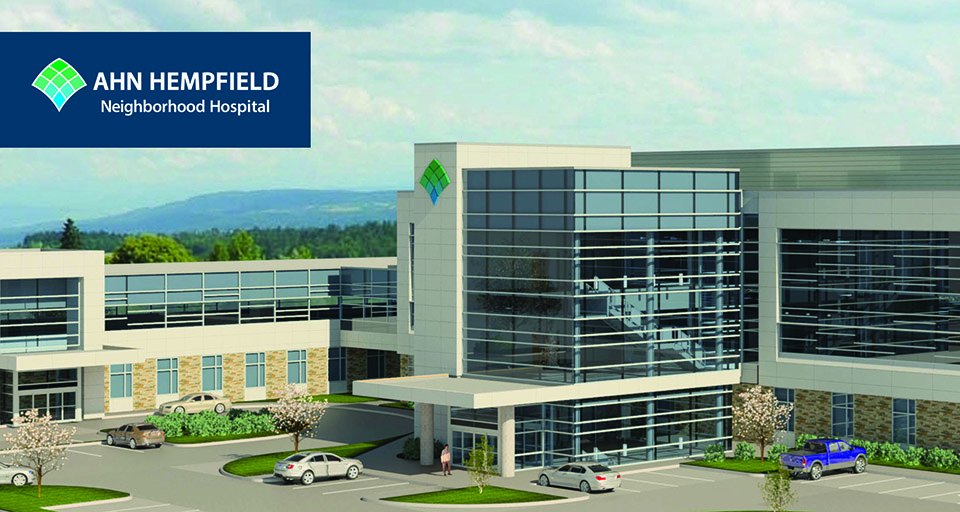
Neurosurgery: As the largest academic neurosurgery department in the nation, UPMC has led the way with many innovative, minimally invasive brain and spine surgical procedures. Patients travel from around the world to access UPMC’s subspecialists for highly complex and rare neurosurgical conditions.
Orthopaedic Surgery and Sports Medicine: Nationally recognized for excellence in orthopaedic surgery and sports medicine, UPMC offers expert care for the full array of musculoskeletal and sports injuries and conditions. It is the long-time official sports medicine provider for Pittsburgh’s premier sports teams, including the Pittsburgh Steelers, as well as the University of Pittsburgh Panthers and the Pittsburgh Penguins®.
Pediatric Care: Nationally and internationally renowned for excellence in pediatric care, safety and quality, technology, and innovation, UPMC Children’s Hospital of Pittsburgh provides comprehensive, family-centered care for infants, children, teens, and young adults. It is not only a leading center for specialized treatment of many complex and life-threatening conditions but also a resource for underserved communities and a leader in digital technology including telemedicine. In addition to the main hospital in the Lawrenceville section of Pittsburgh, UPMC Children’s operates outpatient locations north, south, and east of the city as well as throughout the region.
Trauma: UPMC houses the largest trauma program in Pennsylvania, treating nearly 12,000 patients with traumatic injuries each year. The program is backed by some of the nation’s leading researchers in trauma care, who have been influential in developing life- and limb-saving protocols that have been adopted nationally.
Transplantation: Since 1981, UPMC has performed more than 20,000 organ transplants, and has been internationally recognized for its far-reaching influence in this field. More recently, UPMC has become a national leader in innovative approaches, such as living donor transplants, which offer greater hope for patients in need of a kidney or liver transplant.
Women’s Health: UPMC Magee-Womens Hospital is a premier center for women’s health, offering services ranging from routine obstetrics and gynecology visits to highly specialized maternal fetal medicine and women’s cancer treatment. Each year, more than 10,000 babies are delivered at UPMC Magee.
UPMC’s other nationally known clinical programs include psychiatry, rehabilitation, geriatrics, and pulmonology.
In addition to providing exceptional health care, UPMC touches the lives of many throughout the communities it serves through:
UPMC Senior Communities, which offers older adults independent living, person care, assisted living, skilled nursing and rehabilitation, and memory care options.
UPMC Home Healthcare, which offers comprehensive nursing services as well as hospice care in both Central and Western Pennsylvania.
Community contributions of $1.4 billion in the most recent fiscal year, to address a wide range of community health needs.
A champion of innovation and change at all levels of care and service, UPMC strives to transform health care through quality, ideas, and solutions. By fusing science, technology, and medicine, UPMC is inventing new models of accountable, cost-efficient, and patient-centered care.
Allegheny Health Network (AHN), based in Pittsburgh, Pennsylvania, is a patient-centered and physician-led academic healthcare system that provides charitable care and high-quality, comprehensive health care services to patients from Western Pennsylvania and the adjacent regions of Ohio, West Virginia, New York and Maryland. AHN comprises 14 hospitals and more than 250 healthcare sites, including Health + Wellness Pavilions, surgical centers and outpatient clinics; a research institute; more than 2,500 employed and affiliated doctors; approximately 21,000 total employees; 2,000 volunteers; a group purchasing organization; and a complete spectrum of home and community-based healthcare services.
The network’s hospitals include one quaternary academic medical center (Allegheny General Hospital in Pittsburgh), nine tertiary/community hospitals that provide a wide array of general and advanced clinical services (AHN Wexford Hospital, Wexford, Pa.; Allegheny Valley Hospital, Natrona Heights, PA; Canonsburg Hospital, Canonsburg, PA; Forbes Hospital, Monroeville, PA; AHN Grove City Hospital, Grove City, PA; Jefferson Hospital, Jefferson Hills, PA; Saint Vincent Hospital, Erie, PA; West Penn Hospital, Pittsburgh; and Westfield Memorial Hospital, Westfield, NY), and four neighborhood hospitals.
AHN was established in 2013, but its member hospitals share legacies of charitable care that date back 170 years (West Penn Hospital was chartered in 1848). Anchored by nationally and internationally recognized clinical and research programs in the areas of bone and joint care, sports medicine, cardiovascular disease, neurosurgery and neurology, women’s health, cancer, emergency medicine, bariatric and metabolic disease, AHN provides a complete spectrum of advanced diagnostic, medical and surgical care across all medical specialties, including primary care, trauma and burn care, general surgery, psychiatry, diabetes, autoimmune diseases, critical care, digestive diseases, men’s health/urology, lung and esophageal diseases, and rehabilitation services.
AHN also plays a pivotal role in the training of future generations of healthcare professionals by offering four dozen graduate medical programs, and by maintaining affiliations with two medical schools and two nursing schools. The Network’s hospitals serve as clinical campuses for the medical schools of Drexel University and the Lake Erie College of Osteopathic Medicine (LECOM). Nearly 250 students are enrolled each year in nursing programs at the West Penn Hospital School of Nursing and the Citizens School of Nursing in Natrona Heights, and about 450 medical residents and fellows receive advanced training on staff at AHN hospitals.
AHN’s Cancer Institute includes more than 50 Cancer Institute clinics, two dozen separate clinical locations and a multidisciplinary team of more than 200 physicians; together they treat 10,000 patients annually in Western Pennsylvania, Erie, West Virginia, and Ohio. The Institute now includes four new regional cancer centers, which opened in 2019, a new genomics laboratory, and a new academic cancer institute and research hub that opened on the AGH campus in 2020. Additionally, AHN collaborates with Johns Hopkins Kimmel Cancer Center, to offer more streamlined access to clinical trials and provide additional treatment options and second opinions for patients with rare and complex cancers, among other benefits.
AHN’s Cardiovascular Institute (CVI) is one of the premier cardiac programs in the country, providing superior state-of-the-art care for patients with heart disease and access to Western Pennsylvania’s most comprehensive, multidisciplinary team of specialists and innovative therapies, including many available only through advanced clinical trials, in nearly 30 locations across the AHN footprint. CVI physicians have helped to pioneer the use of the latest generation of implantable cardioverter-defibrillators; were among the first in the nation to perform trans-catheter aortic valve replacement (TAVR), replacing defective aortic heart valves via a minimally invasive catheter procedure; introduced new treatments to repair defective mitral valves via robot-assisted minimally invasive surgery; and played an instrumental role in the development of left ventricular assist devices (LVAD), a mechanical pump that is surgically implanted to assist a weakened heart muscle.
AHN’s Neuroscience Institute is a national leader in providing innovative, expert care for complex brain, spine, or neurological conditions. AHN’s renowned neurosurgeons have developed groundbreaking surgeries and treatment advancements that lead to improved care for patients experiencing the symptoms of Parkinson’s disease, trigeminal neuralgia, stroke complications, congenital spinal conditions, and more. Additionally, AGH has earned a “Comprehensive Stroke Center” designation, the highest distinction of stroke care awarded by the American Heart Association’s Joint Commission.
AHN’s Orthopaedic Institute’s multidisciplinary team of surgeons, physicians, nurses, physician assistants and rehabilitation specialists work together to develop a coordinated treatment plan specifically designed for each patient, specializing in pediatric orthopaedics, joint replacement, orthopaedic surgery, spinal surgery, and sports medicine. AHN’s Sports Medicine team is the official medical provider for the Pittsburgh Pirates, the Pittsburgh Riverhounds, and numerous regional high schools, and has been designated as an Official U.S. Olympic Regional Medical Center.
AHN Women’s Institute offers compassionate and comprehensive care through its network of more than 100 obstetricians and gynecologists, and hundreds of other specialists who work together to care for women. AHN clinicians treat patients at more than 50 women’s health office locations, through every life stage: prevention and wellness; labor and delivery services; advanced gynecologic surgeries; midlife care; specialized cardiovascular treatments; leading-edge breast cancer diagnostic and therapeutic capabilities; menopause and osteoporosis therapies; and innovative clinical trials and advanced therapies for gynecologic cancer. In 2018, AHN opened its Alexis Joy D’Achille Center for Perinatal Mental Health, an innovative new facility that offers women with pregnancy-related depression access to a spectrum of family-focused care options under one roof. In 2019, AHN’s obstetrical units delivered more than 8,000 babies. In 2021, AHN’s fifth obstetrical unit – and fourth in Allegheny County – opened at AHN Wexford Hospital.
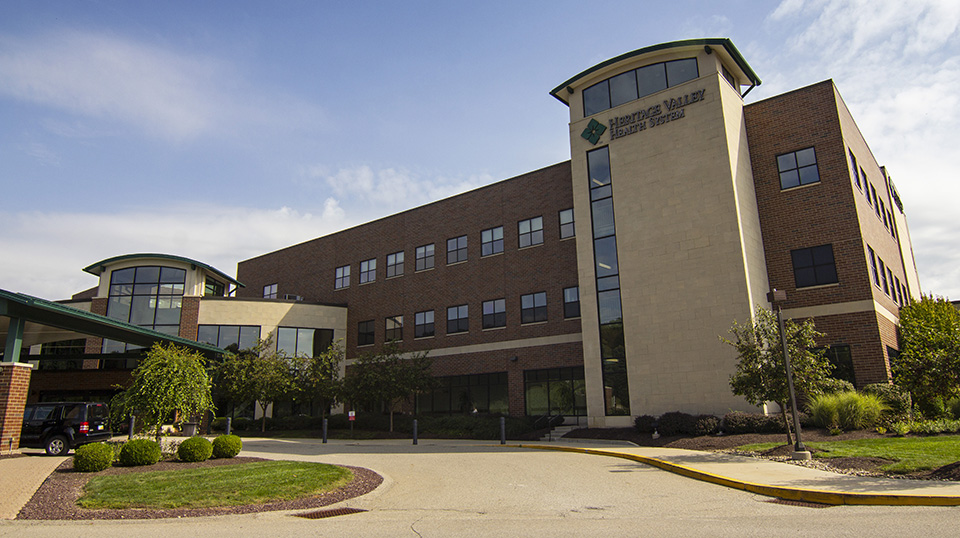
St. Clair Hospital in Upper St. Clair is an acute-care facility that provides advanced, high-quality health care to more than 400,000 residents of Southwestern Pennsylvania. With 525 physicians and more than 2,000 employees, St. Clair Hospital is the largest employer in Pittsburgh’s South Hills and is the only Pittsburgh-area hospital to be named one of the 100 Best Places to Work in Pennsylvania for six consecutive years. St. Clair offers virtually every healthcare service residents may need throughout their lives, and continually enhances its services and technologies to meet the community’s health needs. The hospital’s array of inpatient and outpatient services is nothing short of comprehensive and includes advanced cardiovascular services; specialized care for women, children and infants; diabetes treatment; oncology services; emergency care; general surgery services; behavioral health services; and pulmonary care.
Physicians at St. Clair Hospital use the most sophisticated imaging and diagnostic equipment available to assure that patients receive the fastest and most accurate readings, to determine their conditions, and to plot a course of treatment. From PET Scanning to CT Scanning to Nuclear Medicine and Ultrasound, the hospital’s Medical Imaging Services offers the most advanced technologies to save lives and provide superior medical care. Complementing the services at its main campus in Mt. Lebanon, the hospital offers healthcare services at three outpatient centers, including a diagnostic center located in Bethel Park. A new medical office building and outpatient center is now open in Peters Township also. St. Clair Hospital is home to the region’s largest Emergency Department visited by nearly 60,000 patients each year. To accommodate the growing needs of the community in this regard, the hospital recently completed a $13.5-million expansion of the department to increase capacity to 80,000 visitors per year.
The 30,000-square-foot department features state-of-the-art monitoring and imaging equipment. From diagnosis and treatment to rehabilitation and wellness, St. Clair Hospital offers a full range of cardiac-care services. Its highly skilled professionals have helped the hospital to achieve industry-leading treatment times for heart attack victims arriving at its Emergency Department and have achieved better outcomes than some of the most recognized hospitals in the United States.
The American College of Surgeons Commission on Cancer has accredited the Cancer Care Center at St. Clair Hospital as a Comprehensive Community Cancer Center with Commendation, the highest rating a community hospital can achieve. Since its inception, St. Clair Hospital’s cancer program has demonstrated impressive survival rates. The relative five-year survival rate for patients diagnosed with invasive cancer — for six of the most common cancers– exceeds national and state averages.
To complement its inpatient services, a highly skilled team of board-certified physicians, registered nurses, physical therapists, technologists and technicians provide compassionate, personalized care for a wide range of outpatient medical services. The Women and Children Services provides comprehensive health care for women of all ages and children from birth through adolescence. Women and Children Services comprise the Family Birth Center, the Lactation Center, Gynecology, the Pediatric Unit, including 24-hour Pediatrician coverage, and an extensive community, health-education department.
Heritage Valley Health System is a $535 million integrated delivery network providing comprehensive health care for residents of Allegheny, Beaver, Butler and Lawrence counties, in Pennsylvania; eastern Ohio; and the panhandle of West Virginia. In partnership with 4,100 employees and more than 630 physicians, Heritage Valley offers a broad range of medical, surgical and diagnostic services at its three hospitals, Heritage Valley Sewickley, Heritage Valley Beaver and Heritage Valley Kennedy; in 55 physician offices; and more than 21 community satellite facilities. For more information about Heritage Valley Health System, please visit www.heritagevalley.org.
Butler Health System, a community health system, provides healthcare services in locations throughout Western Pennsylvania. Its doctors, nurses, and other healthcare professionals are personally invested in the community and focus on providing individualized care for every patient treated there. The Butler Health System sees itself as neighbors taking care of neighbors for the benefit of the whole community.
To serve the community’s needs, BHS conducts annual Community Health Assessment surveys, the results of which help determine ways to improve the community’s health through new services and education programs.
The centerpiece of the Butler Health System is Butler Memorial Hospital, founded in Butler County, Pennsylvania in 1898. The hospital currently has 1,700 employees who provide a variety of services to help individuals and families manage and maintain their health.
The Heart & Vascular Center of Butler Memorial Hospital was named the top Cardiovascular Surgery Program in the State of Pennsylvania and among the top 5 percent in the nation. At the same time, the center received the top rating of all cardiovascular surgery programs in the state of Pennsylvania by HealthGrades, the nation’s leading healthcare quality assessment company. Butler Memorial has received 5-star ratings in cardiac bypass surgery for several years by HealthGrades, but this is the first time the hospital received the “Best in the State” designation.
Elsewhere, the Washington Hospital Health System in Washington, Pennsylvania provides sophisticated healthcare services — including open-heart surgery and spine surgery — that are available to people throughout Washington and Greene Counties.
For the last 30 years, the hospital has been the largest employer in Washington County and employs about 1,900 people. If you take into account those employed in the hospital’s affiliate organizations and physician practices, that total approaches 2,300.
“We are a significant economic engine for Washington County and most of our employees live within a ten- to-20-mile radius of the hospital,” says Brook Ward, President and CEO.
“We have a payroll of more than $100 million, and that money goes back into the community. And we buy supplies in this area, which adds to our economic impact.” He adds that the hospital brings in dollars from the federal government and the state of Pennsylvania. “About 70 percent of our patients are covered by Medicare or Medicaid. Again, that’s money coming in from the federal or state governments that supports this area.
Ward sees the mission of the hospital more broadly than taking care of patients in beds, but rather as promoting the overall health of the community.
“We are a full-service community-health system, as compared to a specialty hospital or a smaller hospital,” he says. “We offer a breadth of services, not just medical and surgical, but obstetric and psychiatric, inpatient rehab, emergency, and a full list of outpatient services. And our Washington Physician’s Services Organization employs in excess of 50 physicians in more than 18 practices throughout Washington and Greene Counties.”
As a non-profit institution, Washington Hospital provides a number of services subsidized by philanthropy or by the services themselves. Its Teen Outreach Program helps young people in the community avoid unwanted pregnancies by dealing with young men, single parents, and by focusing on teens, their health, and the health of their children. All of which enables young people in the community to avoid unwanted pregnancies.
Additionally, the hospital makes available other programs for the community that don’t pay for themselves, such as diabetes and mammography screenings for people who lack health insurance.
Washington Hospital provides a variety of affiliated services such as the Wilfred R. Cameron Wellness Center, a medically based fitness and wellness center open seven days a week from 5 a.m. to 10 p.m. with abbreviated hours on the weekend. The center includes a variety of pools such as a lap pool and a warm-water-therapy pool. Members use the center to maintain their fitness and to help them recover from illness.
The hospital is also affiliated with the Greenbriar Treatment Center, one of the top chemical-dependency centers in Western Pennsylvania. Greenbriar includes a residential program, two half-way houses, and seven outpatient centers located throughout Washington, Westmoreland, and Allegheny Counties.
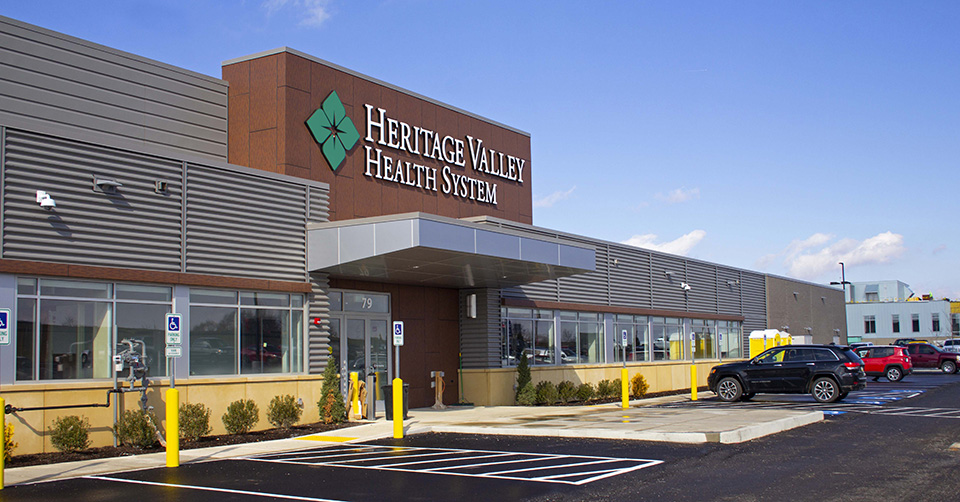
Excela Health continues its commitment to the communities it serves, bringing together three hospitals – Frick Hospital in Mount Pleasant, Latrobe Hospital in Latrobe and Westmoreland Hospital in Greensburg – along with other health care affiliates to meet the health care needs of patients in Westmoreland, northern Fayette and southern Indiana counties. The System serves over 23,000 inpatients, 700,000 outpatients and 100,000 emergency department patients a year. With a current medical staff of more than 700 physicians and allied health professionals in 35 clinical specialties, along with more than 4,300 employees and nearly 800 volunteers, Excela Health continues to attract the best and the brightest to serve those who turn to us for care.
The System is where patients find some of the region’s most accomplished specialists in such areas as cardiovascular and pulmonary care, orthopedics, oncology, robotic surgery, thoracic surgery, emergency medicine and obstetrics/gynecology, along with a robust network of primary care physicians across Westmoreland County.
The Excela Health Heart, Lung & Vascular Institute uses the latest minimally invasive techniques and technologies in the treatment of coronary artery disease, heart valve repair or replacement, lung cancer and conditions of the peripheral arteries. In October of 2021 the Open-Heart Program at Excela was ranked by the Society of Thoracic Surgeons (STS) as among the top 2% nationwide. Less than 10% of programs in the STS database have achieved this elite status.
Excela became the first health system in Pennsylvania in November of 2021 to provide a new procedure that improves the symptoms of patients with systolic heart failure. The Barostim implantable device is designed to treat heart failure patients who have had little or no success with other treatment options.
2021 also saw the initiation of Transcatheter Aortic Valve Replacement (TAVR) at Excela. Representing another major advance in the System’s capabilities in its cardiothoracic program, TAVR is performed on patients with symptomatic, severe aortic narrowing and who are at risk for standard valve replacement surgery.
Our facilities are equipped with Hybrid Operating Rooms, and Excela Health has recently introduced the WATCHMAN™ implant. Minimally invasive in nature, this one-time procedure provides an alternative to lifelong use of blood thinners for patients with atrial fibrillation.
Advanced and sophisticated care related to human motion is also rendered through the Excela Health Orthopedics Institute. Specialists there offer an array of services including joint replacement, medical and surgical interventions for the hand, foot and ankle, concussion care and rehabilitation therapies. The Institute’s sports medicine specialists and athletic trainers provide service to 17 scholastic and collegiate programs in Westmoreland County.
The System also recently completed the creation of the Excela Health Surgical Institute, based at Latrobe Hospital. With a focus on cancer care, the $10 million investment will complement the previously established Heart, Lung & Vascular Institute at Westmoreland Hospital.
In December 2019, Excela Health achieved Magnet Recognition® as a reflection of its nursing professionalism, strong collaboration and teamwork and superiority in patient care. The prestigious honor was bestowed by the American Nurses Credentialing Center (ANCC) Magnet Recognition® Program and distinguishes organizations that meet rigorous standards for nursing excellence Magnet accreditation.
Excela Health has also earned a host of prestigious accolades for its clinical expertise and high-quality patient care. Westmoreland Hospital was deemed a Best Regional Hospital by U.S. News & World Report for 2019-2020. This designation is given to hospitals that are top performers in multiple categories. Westmoreland Hospital was one of only 569 hospitals of the nearly 4,500 reviewed to rank among the Best Regional Hospitals in a state or metro area based on their performance in delivering complex and common care.
In 2021, Excela Health was cited as High Performing Hospitals by U.S. News & World Report in the treatment of Chronic Obstructive Pulmonary Disease, Heart Attack and Heart Failure. Also in 2021, the Family Additions Maternity Center at Excela Health Westmoreland Hospital was ranked for the second year in a row as among the nation’s best by Newsweek Magazine, the only program in southwestern Pennsylvania to receive such an accolade.
The Excela System has achieved Bronze Recognition through the American Heart Association “Mission Lifeline” Award. Mission: Lifeline EMS Recognition is the American Heart Association’s program that recognizes EMS Agencies for their quality of care for STEMI (ST segment elevation myocardial infarction) and Acute Coronary Syndrome (“ACS”) patients. This high level of care is achieved through Systems of Care collaboration with STEMI Receiving Centers and with STEMI Referring Centers.
All three Excela Health Hospitals have been designated by the Joint Commission as Primary Stroke Centers and achieved Gold Plus status from the American Heart Association’s “Get with the Guidelines “program for the treatment of stroke.
With deep roots in the region, Excela Health hospitals collectively have been caring for patients for more than 300 years. The system continues its commitment toward excellence by embracing safe and efficient patient-centered care driven by value-based behaviors in order to “Improve the Health and Well-Being of Every Life We Touch.”
Health Insurance
One of America’s leading health insurance organizations and an independent licensee of the Blue Cross Blue Shield Association, Highmark Inc. (the Health Plan) and its affiliated health plans (collectively, the Health Plans) work passionately to deliver high-quality, accessible, understandable, and affordable experiences, outcomes, and solutions to customers. As the fourth-largest overall Blue Cross Blue Shield-affiliated organization, Highmark Inc. and its Blue-branded affiliates proudly cover the insurance needs of more than 6 million members in Pennsylvania, Delaware, New York and West Virginia. Its diversified businesses serve group customer and individual needs across the United States through dental insurance and other related businesses. For more information, visit www.highmark.com.
Highmark Direct Stores
Highmark is a leader in community health and wellness. We opened Pennsylvania’s first health insurance stores in 2009. Our Highmark Direct health insurance stores feature:
Personalized services: Our store associates meet one-on-one with you to answer your questions and address your health insurance needs.
Convenient locations: You can find stores in 11 Pennsylvania cities, in commercial districts where you routinely shop. Most stores have evening and Saturday hours. Go to https://www.highmarkdirect.com/storeservices to see the list of store locations.
Pressure-free shopping: Our sales associates don’t receive commissions. They’ll never try to sell you coverage that you don’t need.
Direct phone access: Occasionally, you may stop in without an appointment and find that our store associates are helping other customers. Our store concierge can set you up with a direct line that provides immediate access to an on-call Highmark representative. You’ll never be placed on hold.
Translation services: Our in-store customer phone line offers translation services [in many spoken languages]. We also have sign language interpreters who can meet with you at a store. When making an appointment, please let us know if you need translation services.
Customer kiosks: Use our computers and free Wi-Fi to log into your Highmark member account, evaluate plan options, find a provider and complete other health care tasks.
Free health assessments: Visit the health evaluation area at your local store to check your weight, body mass index (BMI) and blood pressure. You’ll receive a printout of your personal information with tips for improving your health.
To schedule a personalized session with a Highmark Direct health insurance store associate go to https://www.highmarkdirect.com/schedule or simply drop in.
UPMC Health Plan
Headquartered in Pittsburgh, UPMC Health Plan is among the nation’s fastest-growing health plans. As part of an integrated health care delivery system, UPMC Health Plan is committed to providing its members better health, more financial security, and the peace of mind they deserve. UPMC Health Plan partners with UPMC and community network providers to produce a combination of knowledge and expertise that provides the highest quality care at the most affordable price.
As part of the UPMC family, we work closely with world-class hospitals, physicians, and researchers to deliver award-winning health care products, programs, and services. And we seek to do all this with a personal touch, helping individual members and their families enjoy the best possible health and quality of life.
The UPMC Insurance Services Division—which includes UPMC Health Plan, Workpartners, UPMC for Life, UPMC for You, UPMC for Kids, UPMC Community HealthChoices, UPMC for Life Complete Care, and Community Care Behavioral Health—offers a full range of group health insurance, Medicare, Special Needs, CHIP, Medical Assistance, behavioral health, employee assistance, and workers’ compensation products and services to more than 3.9 million members.
UPMC, our parent company, is a $21 billion health care provider and insurer. UPMC is inventing new models of patient-centered, cost-effective, accountable care. U.S. News & World Report consistently ranks UPMC Presbyterian Shadyside among the nation’s best hospitals in many specialties and ranks UPMC Children’s Hospital of Pittsburgh on its Honor Roll of America’s Best Children’s Hospitals.
Our local provider network includes UPMC as well as community providers, totaling more than 140 hospitals and more than 29,000 physicians throughout Pennsylvania and parts of Ohio, West Virginia, and Maryland.
www.upmchealthplan.com.
Aetna offers Health Maintenance Organization (HMO), High Deductible Preferred Provider Organization (PPO), Preferred Provider Organization (PPO), Preferred Provider Organization Value (PPO), and Preventive and Hospital Care. The HMO is a network of doctors, hospitals, health care providers and pharmacies that offers medical treatment at a reduced cost to members. This type of coverage is often some of the most affordable health insurance a person can buy in Pennsylvania. Some health insurance shoppers want a plan with a higher deductible that allows them to pay a lower monthly premium or to pair a deductible plan from Aetna because the plan qualifies to be paired with a tax advantaged Health Savings Account (HSA). Health-insurance shoppers who enroll in an Aetna PPO plan or PPO Plan Value enjoy access to a network of preferred providers that includes family doctors, hospitals, and specialists. They need not select a primary care physician (PCP) and need no referrals to see the providers in the network. Unlike HMO insurance networks, PPO plans from Aetna include two levels of coverage. Participants have one set of benefits for care received from providers within the network, and another for care received outside the network. A PPO plan pays for more of insureds’ health-care bills when they receive care within the preferred network.
Aetna’s Preventive and Hospital Plan is a limited insurance plan that offers affordable, monthly, plan premiums. Well-suited to people who use only basic health care services, this plan allows the freedom to go directly to almost any recognized health-care professionals, including specialists, for covered expenses. Typically, insureds have a choice of annual deductible levels that allow them to have greater control over out-of-pocket expenses. Although this type of plan also increases affordability by offering a narrower scope of benefits than other major medical plans, these plans should not be confused with the type of catastrophic or bare bones health insurance available elsewhere.
United Health One offers copay plans that give insureds the security of a predictable, fixed payment for each medical-care office visit, and high-deductible health plans that can save money and help protect against the cost of a catastrophic injury or long hospital stays. The company’s health savings account plans (HSA) provide tax-advantages, with competitive interest rates on HSA accounts. And Short Term MedicalSM Plans offer gap coverage for in-between times, such as when someone is a new college grad in between employment or waiting for new employer sponsored benefits to begin. United’s dental plans and vision plans can be added to one’s personal, health insurance plan or purchased by themselves. And UH continuity is a new, innovative benefit that insureds add to their personal health insurance. This coverage allows them to turn off coverage when they have group insurance and turn coverage back on when they need it at a later time.
HealthAmerica has served Pennsylvania for over 35 years. Listed among the country’s top 20 health plans in the U.S.News/NCQA America’s Best Health Insurance Plans list, HealthAmerica has provided health-benefit solutions to employers across Pennsylvania.
The company offers a broad range of traditional and consumer-directed health insurance products, including managed care, self-funded, Medicare, indemnity, nongroup, and pharmacy plans. HealthAmerica has corporate offices in Pittsburgh and Harrisburg, Pennsylvania, and serves 11,000 businesses and more than 500,000 members in Pennsylvania and Ohio. The company offers progressive medical management, innovative wellness, programs, and statewide and national provider networks. HealthAmerica’s HMO, POS, and Medicare Advantage plans have ranked among the top 50, best health plans in the U.S. News/ NCQA “America’s Best Health Plans” list every year since 2005. These plans currently have “Excellent” accreditation by the National Committee for Quality Assurance.
Plan Members get access to information and resources that help them make the most of their plans. By registering for My Online Services™ members manage spending accounts and claims, research doctors and hospital quality information, and send and receive secure messages from HealthAmerica’s customer service. Providers enroll in directprovider.com for access to member eligibility and benefits, claims, remittance advice, authorizations, a resource library, provider news, and secure messaging. Employers administer their companies’ health plans through Online Account Management™ that offers secure, password-protected service features. A dedicated Net Support Team stands by via a toll-free phone number to assist with HealthAmerica’s online services.
Brokers enjoy a wide spectrum of products designed to meet the changing needs of their customers. Brokers get quotes online, download forms, and more. And new and expanding brokers can learn about becoming appointed and selling HealthAmerica’s newer products, such as Medicare and individual plans.
What type of exchange is the Pennsylvania health insurance marketplace?
Pennsylvania initially opted not to establish its own health insurance marketplace, so the state used the federally run exchange at HealthCare.gov for several years. But that changed in the fall of 2020, with the debut of Pennsylvania’s new state-run exchange, called Pennie.
The state enacted legislation in 2019 to authorize the transition away from HealthCare.gov. By switching to its own exchange, Pennsylvania expects to save up to $50 million per year, which is being used to cover the state’s portion of the cost of a reinsurance program.
The state also gained numerous other benefits in terms of flexibility and control over the marketplace, described here by Jessica Altman, Pennsylvania’s Insurance Commissioner and the chairwoman of Pennie’s board of directors. Among the most significant from consumers’ perspective is the flexibility to extend open enrollment – which Pennsylvania opted to do right out of the gates: Open enrollment for 2021 coverage lasted an additional month, compared with what it would have been if the state had continued to use HealthCare.gov.
The marketplace (Pennie) is used by people who purchase their own health insurance. This includes people who are self-employed, people who are employed by a small business that doesn’t provide health insurance benefits, and early retirees who aren’t yet eligible for Medicare. The marketplace is also the only place where people can receive financial assistance (premium subsidies and cost-sharing reductions) that make health insurance premiums and out-of-pocket medical expenses less costly.
Pennsylvania’s reinsurance proposal was approved by the federal government in July 2020. The federal government is providing pass-through funding that covers the majority of the cost of the reinsurance program (because reinsurance keeps premiums lower than they would otherwise have been, premium subsidies are also smaller, resulting in savings for the federal government; pass-through funding refers to the process of using a 1332 waiver to allow the state to use the savings).
Pennsylvania estimated that the transition to a state-based exchange and the implementation of a reinsurance program would result in individual market premiums about 5 to 10% lower in 2021 than they would otherwise have been. Insurers that offer health plan options in Pennsylvania’s marketplace ultimately reduced their average premiums by 3.3% (versus an overall average rate increase that would have been necessary without the reinsurance program). mg




